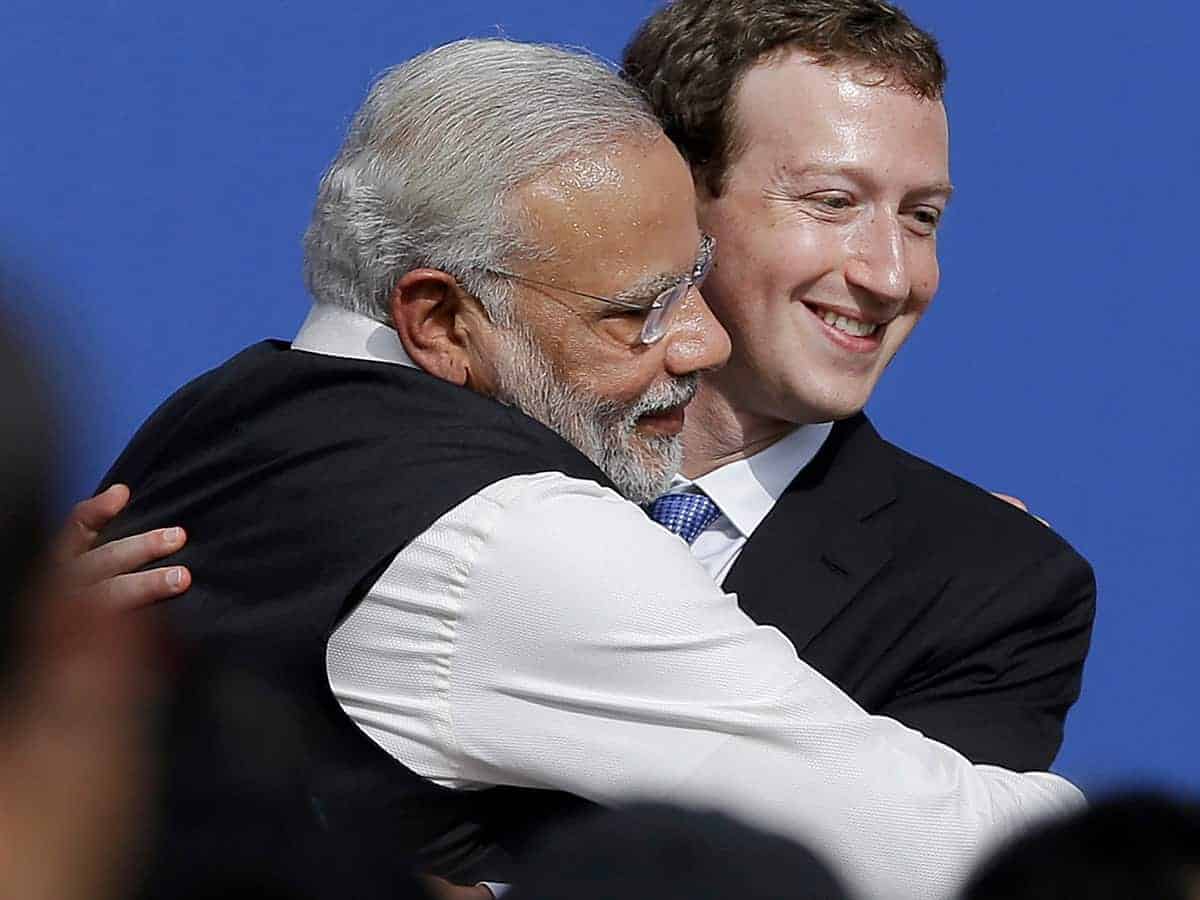In a virtual meeting with employees in June, Facebook CEO Mark Zuckerberg spoke about an Indian leader who threatened to take law into his own hands, setting a “clear precedent” of inciting violence. From the context, Zuckerberg seemed to be referring to the Bharatiya Janata Party politician Kapil Mishra’s February speech in Delhi threatening violence against people protesting India’s new citizenship law.
Within hours of the speech, deadly violence broke out in the country’s capital. Though the video of the speech that Mishra shared on his verified Facebook page was deleted, he remains un-banned from the social media platform. With strict policies on hate speech and incitement of violence, it is a wonder as to how people like Mishra, among others, remain active on Facebook.
Last Friday, a report published by the Wall Street Journal alleged that the company compromised on its hate-speech policy to favor the ruling BJP government. In the article ‘Facebook’s Hate Speech Rules Collide with Indian Politics,’ reporters Newley Purnell and Jeff Horwitz wrote, “The way Facebook has applied its hate-speech rules to prominent Hindu nationalists in India, suggests that political considerations also enter into the calculus.”
They mentioned that an executive of the social-media giant in India opposed applying hate-speech rules to BJP politicians. “The company’s top public-policy executive in the country, Ankhi Das told staff members that punishing violations by politicians from Mr. Modi’s party would damage the company’s business prospects in the country,” the WSJ report says.
The article majorly cites Goshamahal BJP MLA T Raja Singh who pushed ideas that included calls for killing Muslims for eating beef, demolishing mosques, and even having Rohingya refugees shot dead. The employees in charge of policing the platform charged him guilty for hate speech and by Facebook’s own internal standards, tagged him as a ‘dangerous individual’ – a designation that takes into account a person’s off-platform activities. Yet, Ankhi Das refused to put a ban on him. Singh continues to remain active on Facebook and Instagram, sharing objectionable content occasionally.
The article also notes Uttara Kannada Lok Sabha Member of Parliament Anant Kumar Hegde who posted essays and cartoons to his Facebook page alleging that Muslims are spreading COVID-19 in the country in a conspiracy to wage ‘Corona Jihad.’ These unfounded allegations violate Facebook’s hate-speech rules. No action was taken against him too.
WSJ’s article on Facebook’s favoritism towards BJP became the latest flashpoint between the ruling BJP and the opposition Congress. Congress cited the report as evidence of the alleged social media manipulation by the BJP. Capitalising on the report, Congress leader Rahul Gandhi on Sunday accused the BJP and RSS of spreading “fake news” using Facebook and WhatsApp to influence the electorate.
On Monday, a Facebook spokesperson clarified that “We prohibit hate speech and content that incites violence and we enforce these policies globally without regard to anyone’s political position or party affiliation. While we know there is more to do, we’re making progress on enforcement and conduct regular audits of our process to ensure fairness and accuracy.”
While the report by Purnell and Horwitz provides proof-based links between Facebook and the ruling-BJP, it is not the first time. The Guardian’s report in 2016 and Bloomberg’s report in 2017 had similar stories to tell. The Guardian highlighted just how good Ankhi Das’ connections were in the Modi government. “We used to joke that it was like she was Modi’s granddaughter,” one Facebook executive told the paper.

